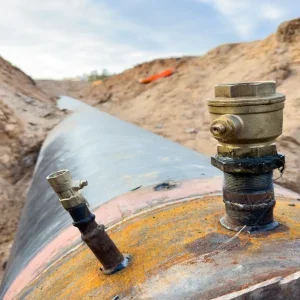Mining companies Vale and BHP Billiton have announced plans to work together, with Samarco, to establish a voluntary, non-profit fund to support the rescue and recuperation of the Rio Doce river system. The river was affected by an accident at Samarco’s tailings dams in Brazil on 5 November 2015.
The fund would initially be sponsored by Vale and BHP Billiton but additional financial support will be sought from other private, public and non-government organisations. A committee will guide investment and oversee budget approval, with a dedicated team responsible for its management according to the targets established.
Actions for recuperation of the Rio Doce river system include the recomposition of riparian forest, water quality and aquatic fauna, as well as helping to rescue the biodiversity of the Rio Doce river basin.
CEO of Vale, Murilo Ferreira, and the CEO of BHP Billiton, Andrew Mackenzie, made the following joint statement of support: "Vale and BHP Billiton are committed to supporting the rehabilitation of those areas of the Rio Doce system impacted by the recent tragedy. The immediate focus for Samarco has been securing the safety of the operations and supporting the humanitarian and environmental response. Plans must also be made for the recovery and rehabilitation of the affected environment.
“The fund will focus on supporting the remediation of the river as part of the commitment of Vale, BHP Billiton and Samarco to the aquatic environment following the release of the tailings into the Doce basin.
Samarco has advised that, at this stage, there are 13 fatalities and six people who remain unaccounted for following the incident. Emergency services are continuing to search for those missing.
Monitoring of the remaining dam structures at Samarco continues. Interim work to repair the damage to the dams and reinforce parts of the structure has commenced while operations remain suspended.
Samarco and local authorities are continuing to assess and monitor water quality in the Rio Doce river system. Where water supplies have been affected, alternative water supplies are being provided by Samarco, working with local authorities. Furthermore tests on the sediments carried out by the Brazilian Geological Service (CPRM) from samples taken at four points in the Rio Doce river system over the period 14-18 November, indicate that concentrations of metals obtained at these sites do not significantly differ from the results produced by CPRM in 2010.
Analysis by SGS Geosol, a company specialising in environmental geochemistry, has confirmed that the tailings are composed of materials that are not hazardous to human health, based on the hazard classification of the material under Brazilian standards. Samarco has advised that the tailings material released as a result of the breach of the Fundão and Santarém dams is considered to be non-reactive and would be geochemically stable when introduced to the river system or ocean.
As a result of the high volume of sand and clay tailings material that moved through the river system, a large number of fish died due to reduced oxygen uptake. Assessment of these impacts is ongoing. The tailings plume has reached the Atlantic Ocean and is dispersing but will continue to be monitored.
The Brazilian Federal Government and certain state governments announced that, on 30 November 2015, they intend to commence legal proceedings against Samarco, Vale and BHP Billiton for clean-up costs and damages.
BHP Billiton and Vale each hold a 50 per cent interest in Samarco.






